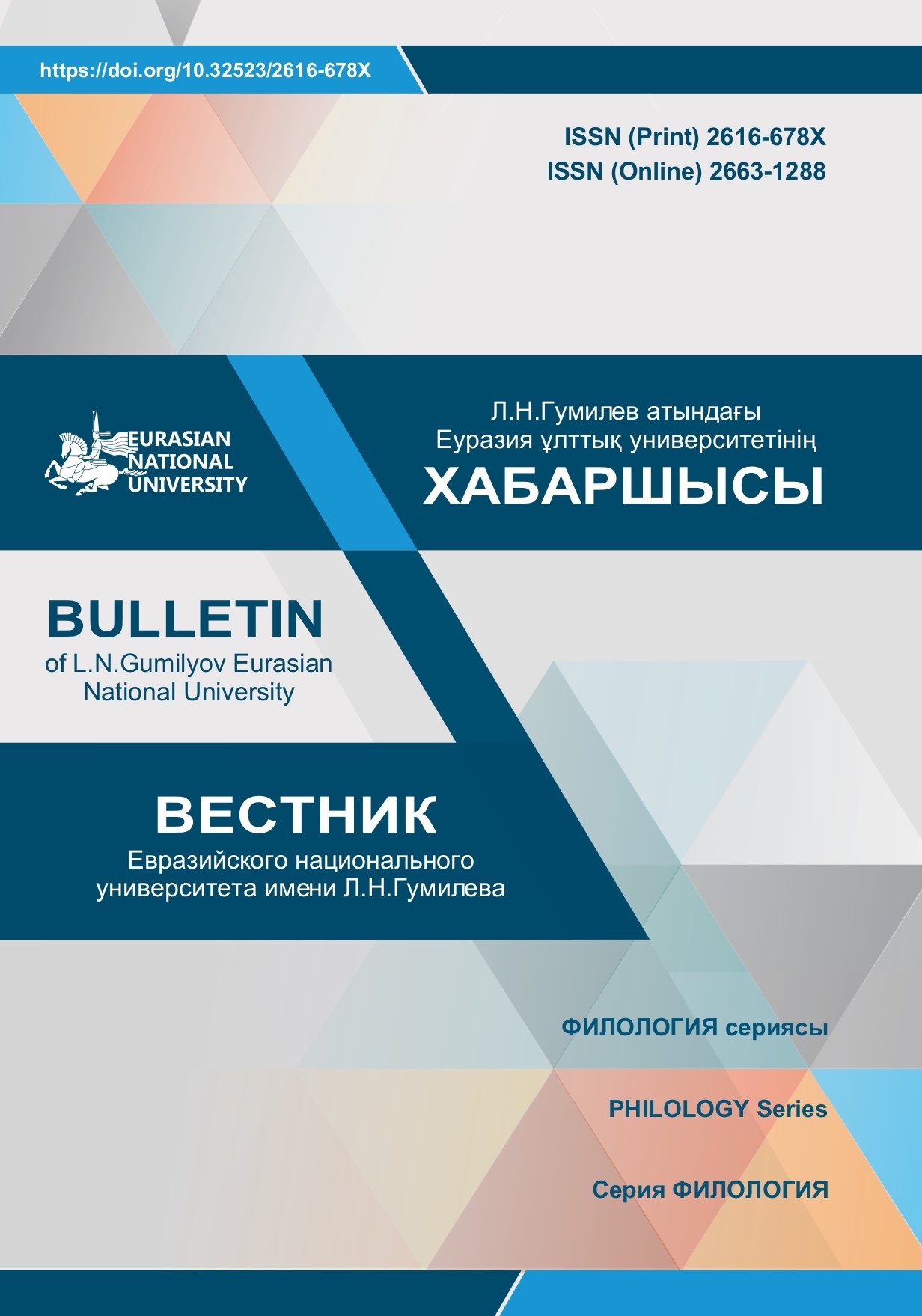Legacy of Abai: Intertextuality in Literary Prose of Oralkhan Bokei
Views: 213 / PDF downloads: 137
DOI:
https://doi.org/10.32523/2616-678X-2025-151-2-167-178Keywords:
text, intertext, intertextual, intertextuality, precedent phenomena, media textAbstract
This article explores the reflection and influence of Abai Kunanbayev's literary and philosophical legacy in contemporary Kazakh prose through the lens of intertextuality. Focusing primarily on the works of Oralkhan Bokey, the study investigates how Abai’s poetic and philosophical texts are reinterpreted and integrated into modern literary narratives. The article emphasizes that Abai's heritage functions as a cultural compass and a reservoir of national values, playing a crucial role in shaping the spiritual and moral consciousness of the Kazakh people. By applying intertextual, comparative, and anthropological methods, the research analyzes the use of precedent texts—such as proverbs, poetic lines, and references to historical and mythological figures—in Bokei’s prose. These intertexts serve to revitalize national cultural codes and enrich the semantic and stylistic depth of modern Kazakh literature. The study also highlights the interplay between folklore and classical literary models in Bokei’s works, considering it a key factor in the continuity and evolution of national literature. Drawing on the theories of Bakhtin, Kristeva, and others, the article demonstrates how intertextual references contribute to the dynamic dialogue between tradition and innovation in Kazakh prose.










